3-17-24
Many times people have asked me why I stay Catholic, what with the sorry state of the Church, the Vatican, etc.
The answer is simple and one word: Transubstantiation.
What is that Napoleon? It sounds weird, and you Catholics sure believe in some weird stuff.
Well read on my friends if you’d like delve into that weird but wonderful world… otherwise just enjoy this Happy St. Patrick’s Day picture!
What is Transubstantiation?
Here is the official Roman Catholic Church definition:
Catechism of the Catholic Church par. 1376
The Council of Trent summarizes the Catholic faith by declaring: "Because Christ our Redeemer said that it was truly his body that he was offering under the species of bread, it has always been the conviction of the Church of God, and this holy Council now declares again, that by the consecration of the bread and wine there takes place a change of the whole substance of the bread into the substance of the body of Christ our Lord and of the whole substance of the wine into the substance of his blood. This change the holy Catholic Church has fittingly and properly called transubstantiation.
What that means in lay person's terms is that the "substance” of the unleavened bread/wafer host, which by our senses is merely a "species” of bread, at Consecration (words spoken/actions by the Priest at Mass), becomes the "substance” of the Body of Christ, but with the "species" of bread" still remaining. Also, what begins as the “substance” of wine which by our senses is merely a "species” of wine becomes the “substance” of the Blood of Christ but with the "species” of wine still remaining.
Let's simplify that “substance/species” discussion even more. At the Eucharist Consecration in the Mass, the Communion host/wafer becomes the physical Body of Christ (substance), even though it remains an unleavened bread wafer to our senses (species). The same with the wine, which becomes the physical Blood of Christ (substance) even though it remains wine to our senses (species). The substance of the bread and wine has changed to the substance of the Real Presence of Jesus (body, blood, soul and divinity), even though it still looks, smells and tastes like bread and wine.
This unique kind of change is never seen in nature: the substance of something changes while the species remains entirely and exactly the same. Thus, it is certainly a very startling and strange claim to make. It is also counter-intuitive — by definition, for our intuitions follow our senses, which are shouting at us that in the Eucharist the consecrated bread and wine are still bread and wine. However, the Catholic teaching is that while the bread and wine after Consecration remain the same in every way on the empirical level, they are now the Body and Blood of Jesus Christ - the Real Presence of Jesus in bodily form. Transubstantiation is the process of the change, the Real Presence of Jesus is the result of that change.
To non-Catholics (and to many Catholics as well, including Priests), this is a weird concept to believe in and is not rational or useful in today’s world. Modern society says that because there can be no empirical evidence for or verification of transubstantiation, the doctrine can be rejected as meaningless. Therefore, why would a rational modern day person still believe in transubstantiation? The answer is actually quite simple: it is believed by people not on empirical grounds, but because God has revealed it in His Word and actions.
This is where faith comes in. To believe that a chalice of bread wafers and a chalice of wine becomes the Real Presence of Jesus Christ in His physical Body and Blood at the Consecration of Mass requires faith in God's revelations and nothing else.
But Napoleon why have this faith in Transubstantiation and the Real Presence of Jesus? Isn't Jesus' words in the Gospels good enough? Wasn't the Last Supper just a final meal and Jesus’ request to say Grace in memory of Him? Didn't Jesus die once and only once? Why would He continue to die over and over again at Mass? Basically aren’t Catholics just making things up about Jesus and at worst resorting to cannibalism at Mass?
Those are all rational objections to the doctrine of Transubstantiation and the Real Presence of Jesus. But read on if you would like to see why I have faith and believe in Transubstantiation and the Real Presence of Jesus.
Why I Believe in Transubstantiation and the Real Presence of Jesus
1. Jesus' Discourse on the Bread of Life
Jesus' discourse on the bread of life was His teaching on the Transubstantiation in the Mass that was to come after His death. When the people asked Jesus to show them a sign so they could believe He was the Christ, He answered that the sign is † "...the bread of God is that which cometh down from heaven, and giveth life to the world." † (John 6:33)
Of course the people then asked Jesus where they could find this life-giving bread, and Jesus responded simply † "I am the bread of life: he that cometh to me shall not hunger: and he that believeth in me shall never thirst." † (John 6:35)
Then after hearing the murmuring among the people, Jesus continued † "...This is the bread which cometh down from heaven; that if any man eat of it, he may not die. I am the living bread which came down from heaven. If any man eat of this bread, he shall live for ever; and the bread that I will give, is my flesh, for the life of the world." † (John 6:50-52)
As the murmuring became louder, Jesus doubled down and said:
† "... Amen, amen I say unto you: Except you eat the flesh of the Son of man, and drink his blood, you shall not have life in you. He that eateth my flesh, and drinketh my blood, hath everlasting life: and I will raise him up in the last day. For my flesh is meat indeed: and my blood is drink indeed. He that eateth my flesh, and drinketh my blood, abideth in me, and I in him. As the living Father hath sent me, and I live by the Father; so he that eateth me, the same also shall live by me. This is the bread that came down from heaven. Not as your fathers did eat manna, and are dead. He that eateth this bread, shall live for ever.” † (John 6:54-59)
Of course it is perfectly reasonable to believe that Jesus did not “literally” mean that people were to eat His flesh and drink His blood to gain eternal life and that He only used those statements as metaphors. But, Jesus never corrected His statements even when the majority of the people following Him left after hearing His scandalous discourse on the bread of life. “When many of his disciples heard it, they said, ‘This teaching is difficult, who can accept it?’... Because of this many of his disciples turned back and no longer went about with him.” (John 6:61, 67)
After seeing the people's reaction to His words, and everyone turning away from Him, Jesus could have said "wait it's only a metaphor!" but instead Jesus tripled down and said † "... Doth this scandalize you? If then you shall see the Son of man ascend up where he was before? It is the spirit that quickeneth: the flesh profiteth nothing. The words that I have spoken to you, are spirit and life." † (John 6:62-64)
To me, Jesus is saying that what He says is true and will be shown by His Resurrection and Ascension to come. It will then be Jesus' spirit that will quicken (revive or make alive) the bread into His Body and the wine into His Blood during the commemoration of His sacrifice in the future Mass. The apostles/disciples of course probably still thought Jesus was talking about literally eating his flesh and blood because the death and resurrection of Jesus had not yet occurred. But Jesus was speaking about eating His Body and drinking His Blood via the sacrifice of the Mass that would be instigated in the remembrance of Him. In the Mass, for ever until the end of time, Jesus actually transforms (quickens) the bread and wine into His physical Real Presence Body and Blood.
2. Jesus' Raising of the Widow's Son
In Luke's Gospel, Jesus witnessed the funeral of a young man and was moved by the widow's grief:
† And when he came nigh to the gate of the city, behold a dead man was carried out, the only son of his mother; and she was a widow: and a great multitude of the city was with her. Whom when the Lord had seen, being moved with mercy towards her, he said to her: Weep not. And he came near and touched the bier. And they that carried it, stood still. And he said: Young man, I say to thee, arise. And he that was dead, sat up, and began to speak. And he gave him to his mother. †. (Luke 7:12-15)
Saint Cyril of Alexandria (380-444) notes how this Gospel story relates to Transubstantiation and the Real Presence of Jesus:
Thus he not only conferred to his word the power to raise the dead, but he even touched the dead to show that his body is life-giving and, through his flesh, he caused life to pass into their corpses. If the touch alone of his sacred flesh restores life to a corrupting body, what profit shall we not discover in his life-giving eucharist when we make of it our food? It will wholly transform into its own property, which is immortality, those who participate in it.
3. Jesus' Last Supper/Institution of the Eucharist at Mass
† And taking bread, he gave thanks, and brake; and gave to them, saying: This is my body, which is given for you. Do this for a commemoration of me. In like manner the chalice also, after he had supped, saying: This is the chalice, the new testament in my blood, which shall be shed for you. † (Luke 22:19-20)
† And whilst they were at supper, Jesus took bread, and blessed, and broke: and gave to his disciples, and said: Take ye, and eat. This is my body. And taking the chalice, he gave thanks, and gave to them, saying: Drink ye all of this. For this is my blood of the new testament, which shall be shed for many unto remission of sins. † (Matthew 26:26-28)
† And whilst they were eating, Jesus took bread; and blessing, broke, and gave to them, and said: Take ye. This is my body. And having taken the chalice, giving thanks, he gave it to them. And they all drank of it. And he said to them: This is my blood of the new testament, which shall be shed for many. † (Mark 14:22-24)
All three Gospels cited above (John does not mention the breaking of the bread), note that Jesus said † "This IS my body" † and † "This IS my blood." † Jesus did not say, this "bread and wine symbolize my body and blood" or "this is like my body and blood." I believe Jesus meant what he said literally, especially since He followed up by saying † "Do this for a commemoration of me." † The question is do what? What is "this commemoration?" Is it just saying Grace before meals? I used to think that it was just Jesus reminding us to think of Him before eating our suppers. But a commemoration is more than that, it is defined as "something that is done to remember officially and give respect to a great person or event."
When the apostles were dining with Jesus for the last time, they did not know that Jesus would die the next day. The breaking of the bread at Passover was just another Passover to them, but to Jesus it was how He would be remembered on earth until His second and final coming. I truly believe when Jesus was resurrected and spent 40 days with his apostles, the Last Supper was finally made clear to them as a true commemoration, with the Real Presence of Jesus manifested at every sacrifice of the Mass. The apostles would not just take a "say Grace before meal in remembering Jesus" action that happened on one Passover and turn it into the commemoration of Jesus' sacrifice on the cross for us if Jesus had not told them that He would literally be in the bread and wine at every Mass. The apostles just wouldn't make up transubstantiation and the Real Presence of Jesus themselves, especially since most people thought the apostles were already crazy enough with the whole "resurrection" story. The apostles would not bring up the old "cannibalism" thing again and make it the core of their beliefs if it were not true and taught to them by Jesus Himself. Enough people refused to follow Jesus the first time He talked about eating His body and drinking His blood. To bring it up again as the cornerstone in commemorating Jesus would surely be a kiss of death in trying to convert new Christians, would it not?
Yet, the apostles did not water down Jesus' teachings on this subject. They had just seen a physical man resurrected from the dead, not in spirit, but in body and blood. If Jesus told them the consecrated bread and wine at Mass IS his body and blood then it is true. God can do anything, including transubstantiating mere bread and wine into the Real Presence of Jesus, Body and Blood. As Jesus said, † “The things that are impossible with men, are possible with God. † (Luke 18:27)
4. Eucharistic Miracles
Along with Jesus’ own words in the Gospels, Transubstantiation and the Real Presence of Jesus has also been shown by God’s own actions in what is called “Eucharistic Miracles.”
Eucharistic miracles are when the consecrated bread and wine not only change their “substances” by becoming the Body and Blood of Jesus, but also change their “species” and no longer resemble bread and wine to our senses.
Blessed Carlo Acutis a devout young man who died of leukemia in 2006 at the age of 15, compiled a list of the Eucharistic Miracles of the World before his death. Browse through this list in the link above to see where the consecrated host (bread) and wine has changed in appearance to become human flesh and blood. Interestingly, although Catholics believe transubstantiation cannot be proved by empirical evidence, modern Eucharistic Miracles have been tested by science and it has been shown in one case that the consecrated bread turned into cardiac tissue with AB blood type, the same type as the Shroud of Turin. In another case, it was found that a bleeding host had cardiac tissue of a living person who is nearing death, and the heart muscle fibers were deeply intertwined with the bread part.
Do I believe in these Eucharistic miracles? Who really knows? All is possible with God and therefore I do not dismiss them out of hand. I do know that these miracles were frequently reported to have happened when the Real Presence of Jesus at the Sacrifice of the Mass was in doubt either by Clergy or Lay People in attendance. In addition, recent testing showing that the Eucharistic Miracle bread is in fact heart tissue, and not just any other tissue in the human body, and the blood type is AB, believed to be the blood type of Jesus, shows me that the Real Presence of Jesus is there. I believe Jesus continually says to us "Look I'm still here and my sacred heart will never leave you!"
Why Transubstantiation and the Real Presence of Jesus Matters to Me
Most Christians, including many Catholics, would probably now say "OK Napoleon, have fun with your ‘supernatural’ beliefs, but we don't need those mystical things to believe and worship God and Jesus. We have the written Bible and that is more than enough.”
True. Jesus is the Word. But Jesus is also God MADE FLESH. The idea that, at consecration during Mass the bread and wine, while retaining their outward appearances, become the Body and Blood, Soul and Divinity of Jesus Christ, to me is a true and wonderful thing. Jesus did not come to earth as an Angel or Spirit without body, blood and flesh, although He easily could have. He came with a human body and after His death and resurrection Jesus left us not only His words in the Gospels, but also His Body and Blood in the commemoration of the Last Supper every Mass. He never left us, even physically. If you want to see Jesus even today in the physical form, sit in front of the Tabernacle in a Catholic Church (a burning red candle signifies the Tabernacle). The Real Presence of Jesus is there, always, in the consecrated bread and wine. Jesus is waiting for all of us, in spirit AND in His physical Body and Blood all the time, to give us never-ending nourishment and life in the bread and wine from Heaven, even while we still live on this earth. This gives me peace and strength to get through this life, until I hopefully make it to my real home in Heaven, and that is why I stay Catholic.
As Jesus’ followers once murmured after hearing Jesus talk about Transubstantiation and His Real Presence - “This is a hard teaching! Who can accept it?”
I do Jesus.

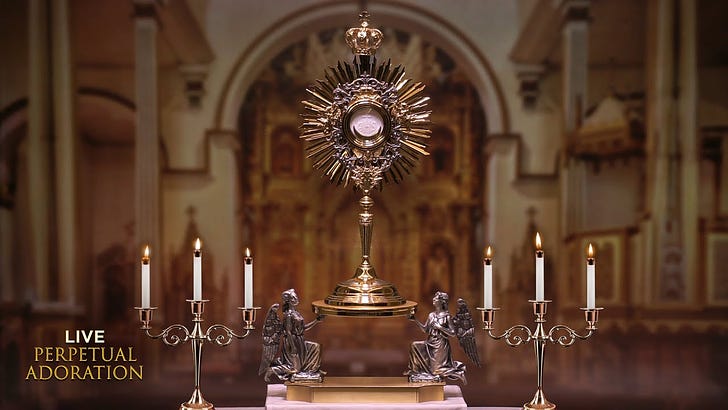



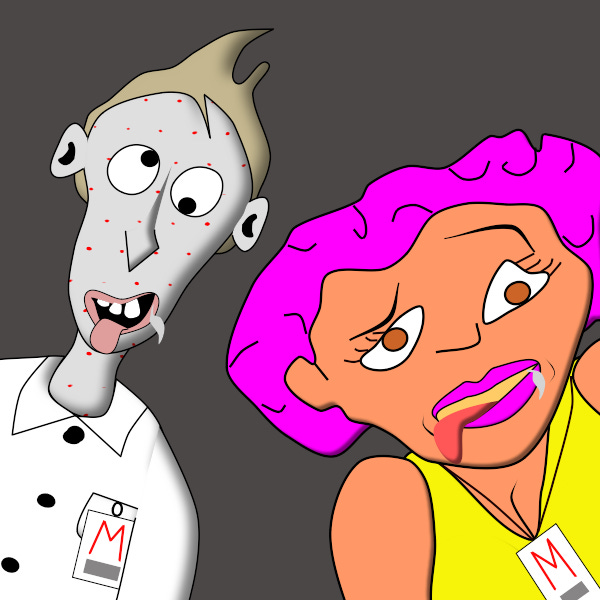

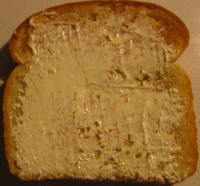
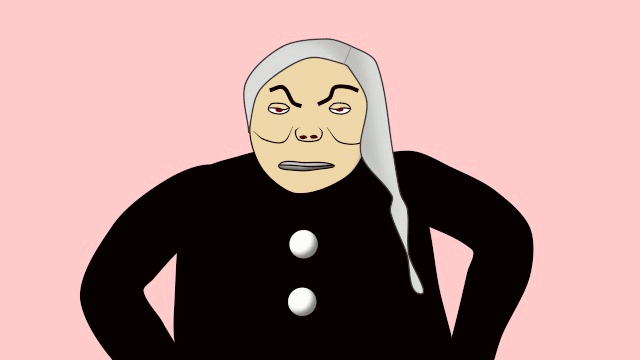
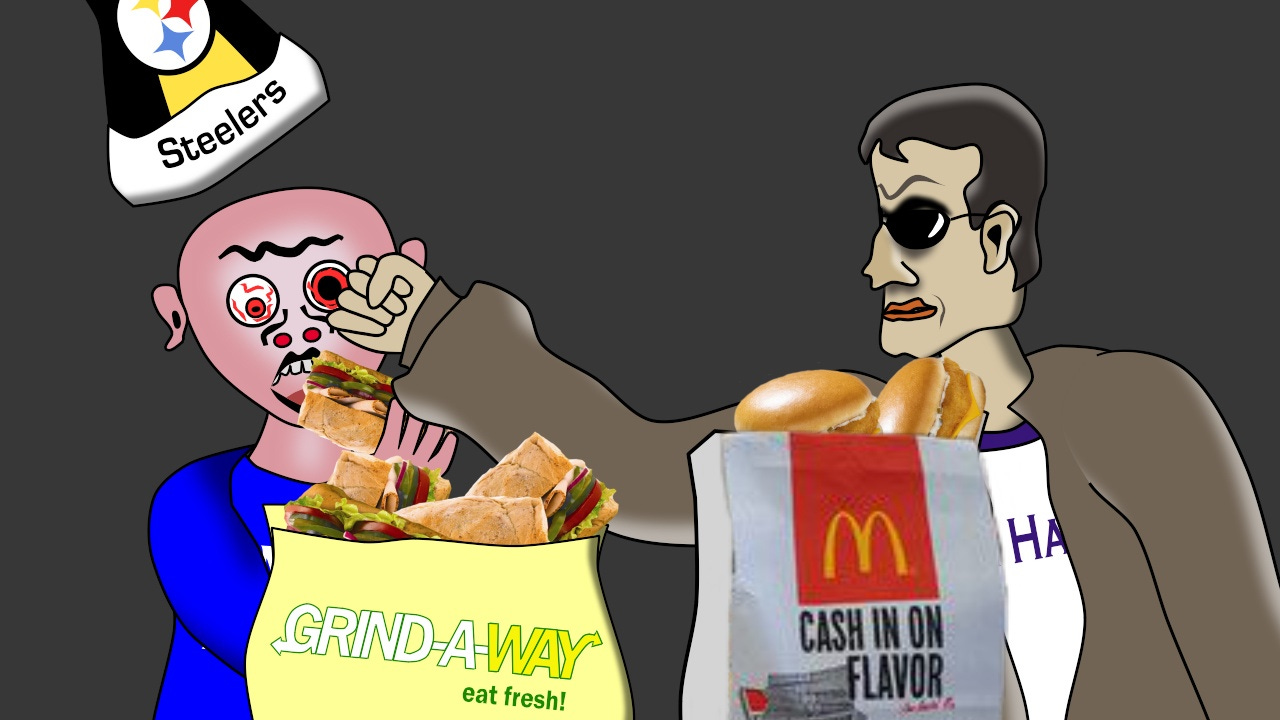

Thank you, Napoleon! Very important discourse.
Having been excommunicated by my Trad Latin Mass community because my first brief marriage ended in divorce. My second wife of 20 years and I are refused communion as a result. Annulment is not an option I would pursue. I made a mistake and acknowledged that. The rainbow church appears more tolerant, but I have no wish to participate there. I sometimes muse around the exclamation of, 'let no man put asunder'. ... Is this always interpreted in a generic fashion ... ie. 'mankind'. What happens when a woman declares she no longer wishes to be married?
This was very interesting and I thank you for explaining the Catholic way of partaking the Sacrament.